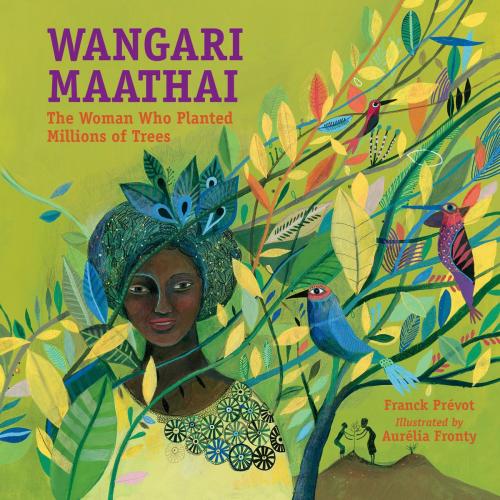Wangari Maathai
The Woman Who Planted Millions of Trees
Kids, Natural World, Conservation and Protection, People and Places, Biography, Non-Fiction| Author: | Franck Prévot | ISBN: | 9781607347958 |
| Publisher: | Charlesbridge | Publication: | January 6, 2015 |
| Imprint: | Charlesbridge | Language: | English |
| Author: | Franck Prévot |
| ISBN: | 9781607347958 |
| Publisher: | Charlesbridge |
| Publication: | January 6, 2015 |
| Imprint: | Charlesbridge |
| Language: | English |
“Trees are living symbols of peace and hope.” –Wangari Maathai, Nobel Peace laureate
This simply told story begins with Green Belt Movement founder Wangari Maathai’s childhood at the foot of Mount Kenya where, as the oldest child in her family, her responsibility was to stay home and help her mother. When the chance to go to school presented itself, she seized it with both hands. In the 1960s, she was awarded the opportunity to travel to the US to study, where she saw that even in the land of the free, black people were not welcome.
Returning home, Wangari was determined to help her people and her country. She recognized that deforestation and urbanization was at the root of her country’s troubles. Her courage and confidence carried her through adversity to found a movement for peace, reconciliation, and healing.
Aurélia Fronty’s beautiful illustrations show readers the color and diversity of Wangari’s Africa—the green trees and the flowering trees full of birds, monkeys, and other animals; the roots that dig deep into the earth; and the people who work and live on the land. Wangari Maathai changed the way the world thinks about nature, ecology, freedom, and democracy, inspiring radical efforts that continue to this day.
“Trees are living symbols of peace and hope.” –Wangari Maathai, Nobel Peace laureate
This simply told story begins with Green Belt Movement founder Wangari Maathai’s childhood at the foot of Mount Kenya where, as the oldest child in her family, her responsibility was to stay home and help her mother. When the chance to go to school presented itself, she seized it with both hands. In the 1960s, she was awarded the opportunity to travel to the US to study, where she saw that even in the land of the free, black people were not welcome.
Returning home, Wangari was determined to help her people and her country. She recognized that deforestation and urbanization was at the root of her country’s troubles. Her courage and confidence carried her through adversity to found a movement for peace, reconciliation, and healing.
Aurélia Fronty’s beautiful illustrations show readers the color and diversity of Wangari’s Africa—the green trees and the flowering trees full of birds, monkeys, and other animals; the roots that dig deep into the earth; and the people who work and live on the land. Wangari Maathai changed the way the world thinks about nature, ecology, freedom, and democracy, inspiring radical efforts that continue to this day.















